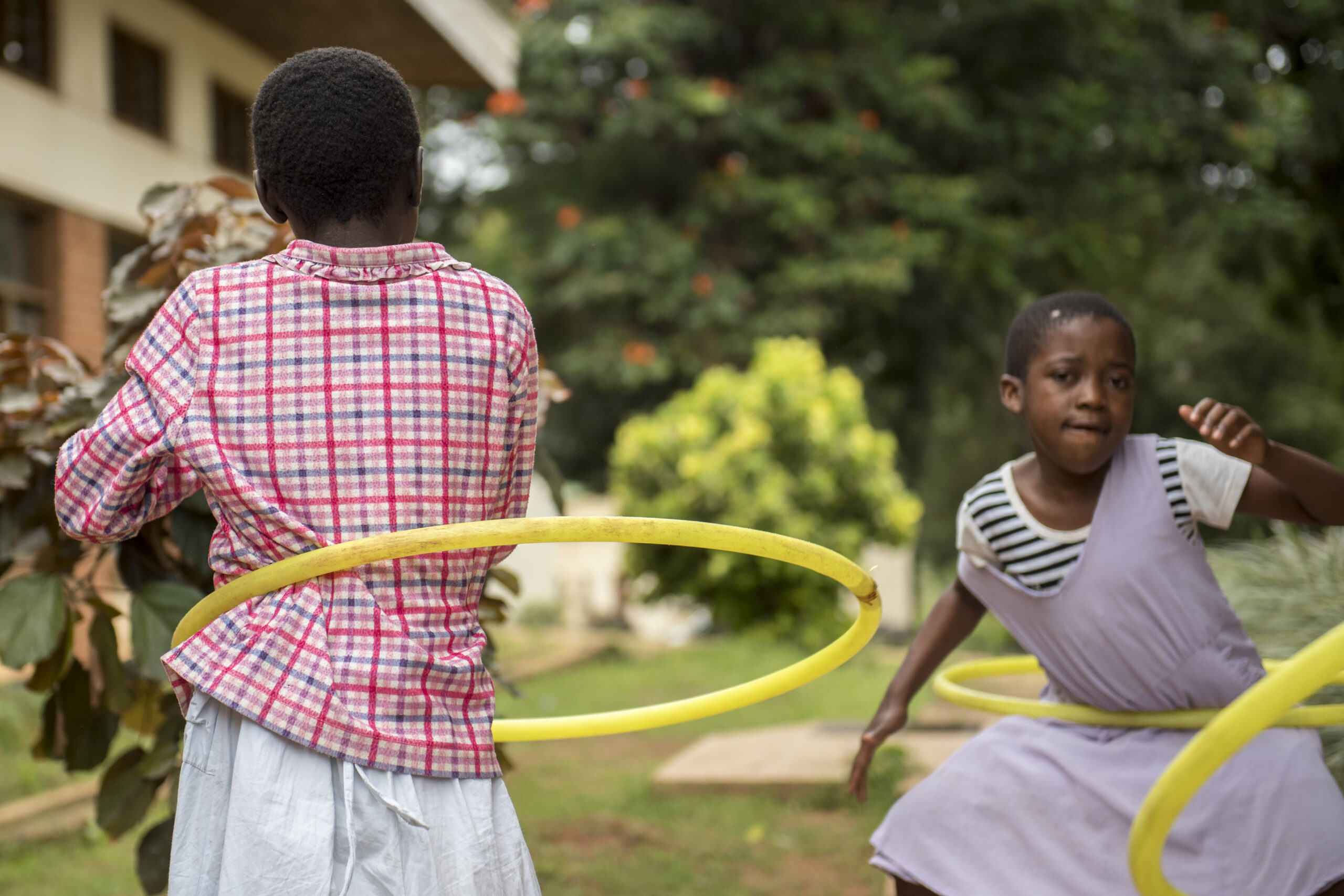“I really like to help people. I love to see my neighbor live an enjoyable life,” says David, a 22-year-old adolescent peer supporter at General Hospital Zing in Taraba State, Nigeria.
“If I eat a meal, I also want my friend to eat.” This sense of sharing motivates David in his work to help other adolescents and young people living with HIV adhere to their antiretroviral medication through a psychosocial support group at the hospital and one-on-one peer support.
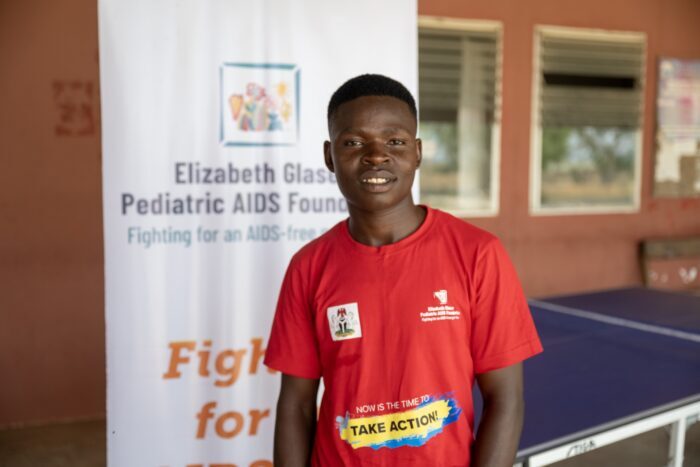
Personalized Support for Adolescents Living with HIV
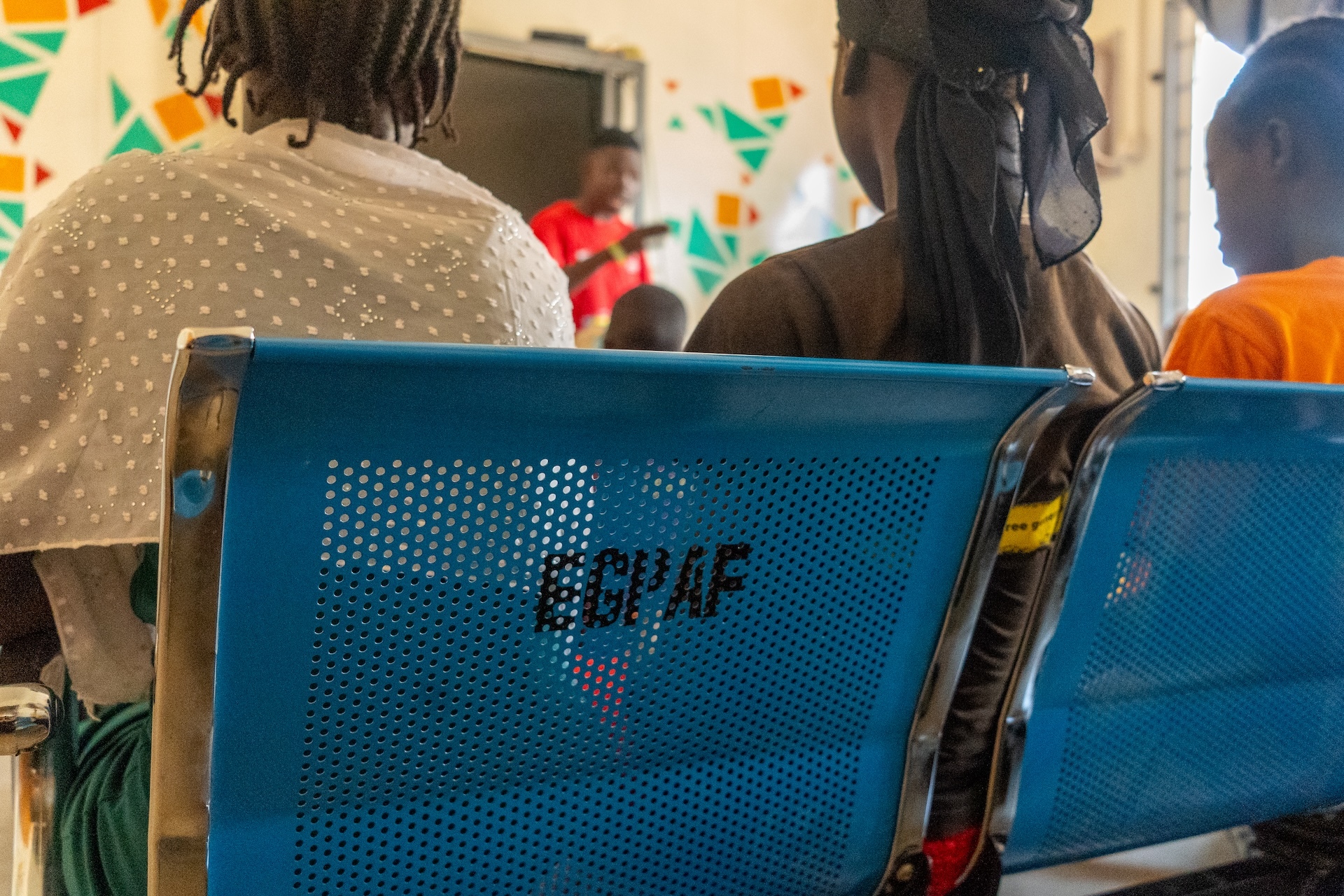
Adolescence is a critical period in human development, characterized by rapid body changes and marked by interpersonal conflict. As they wrestle with the issues of growing up, sometimes adolescents and young people living with HIV lapse from their lifesaving treatment. Recognizing this challenge, the Elizabeth Glaser Pediatric AIDS Foundation (EGPAF) supports peer-led psychosocial support groups for adolescents living with HIV, aged 10 to 19, and engages young advocates like David to help reach his peers.
“Psychosocial support connects our overall health and well-being,” says David. “In our safe space, I mentor my peers to build their self-esteem in addition to helping them achieve viral suppression.”
“Following the training I received to be an adolescent peer supporter, I returned and started practicing all I learned, including being a role model to my peers. We began enrolling adolescents living with HIV into the peer support group. Our meeting is held once every month and is a forum where there is love and unity among us as we support each other.”
Supporting Frank and Fighting Advanced HIV Disease
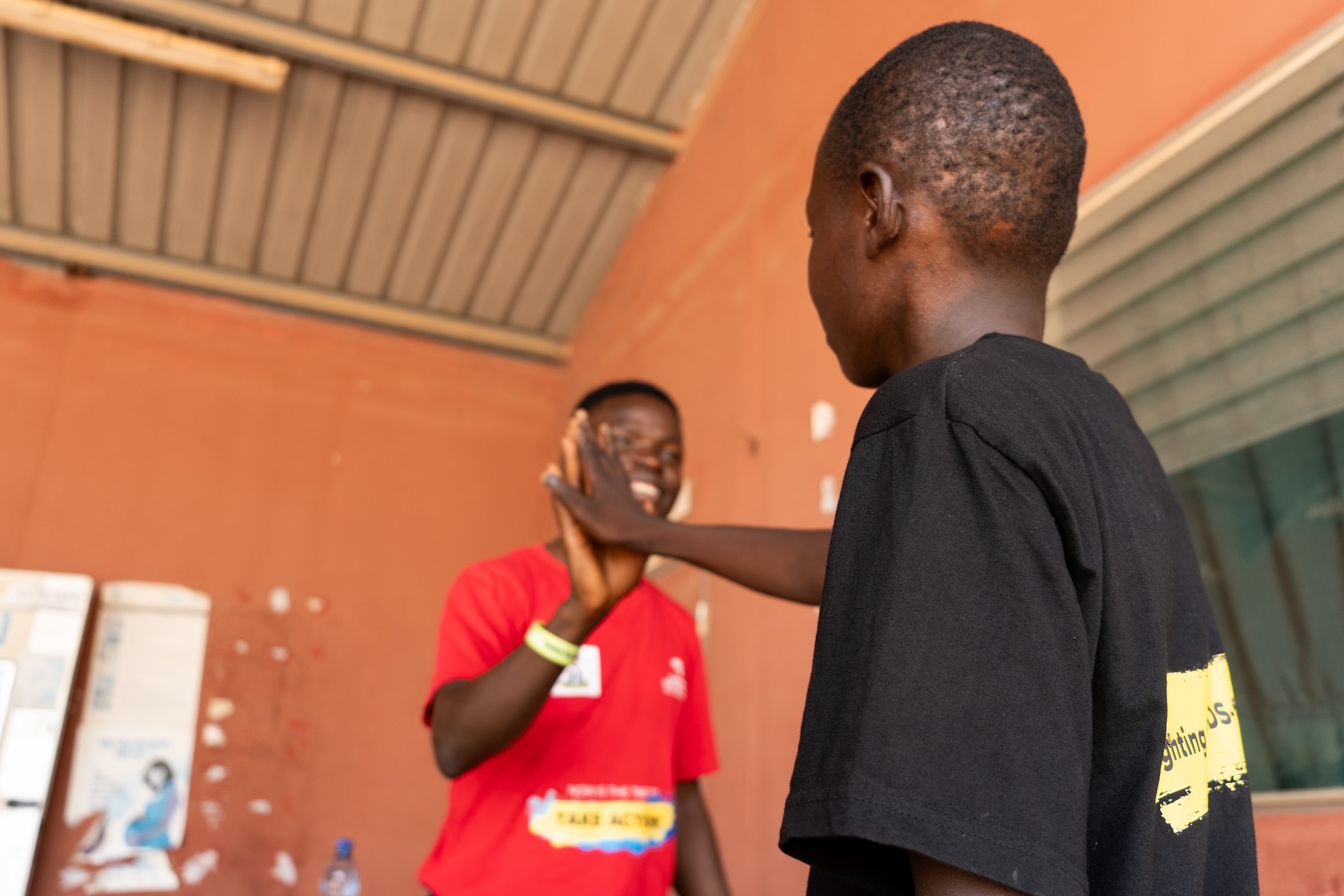
As a peer supporter, David was paired with Frank, an 18-year-old adolescent who was virally unsuppressed, putting him at risk for advanced HIV disease. “I visited where he lives in Mayo-Belwa to provide adherence counseling and support; then, I met with his caregiver to better understand the possible challenges.”
“It was not an easy task,” says David, explaining that the caregiver was not welcoming. “But I explained how I would support Frank, and he agreed to give me a chance.”
During counseling sessions with Frank, David learned that Frank supplements his antiretroviral regimen with native herbs. This can be dangerous since herbal remedies sometimes interfere with the medication. In addition, individuals who treat HIV with natural remedies are more likely to lapse from their prescribed treatment, according to several studies.
“I discussed with the caregiver the importance of adhering to only the prescription from the health facility,” says David. “He reluctantly accepted after I disclosed my [own] HIV status to him and pleaded that he allow us to provide quality support to Frank.”
“But the caregiver said that if he doesn’t notice any improvement after six months, he will discontinue Frank from the medication and the peer support meetings,” David adds.
Abdullahi Saleh, General Hospital Zing’s pediatric case manager, says that knowing this kind of specific information about clients is extremely valuable to the health team: “Though we suspected that there might be something causing Frank’s high viral load, he never told any healthcare workers that he was taking native herbs. Now, we can understand the needs of the adolescents with the help of [David] and ensure no one is left behind.”
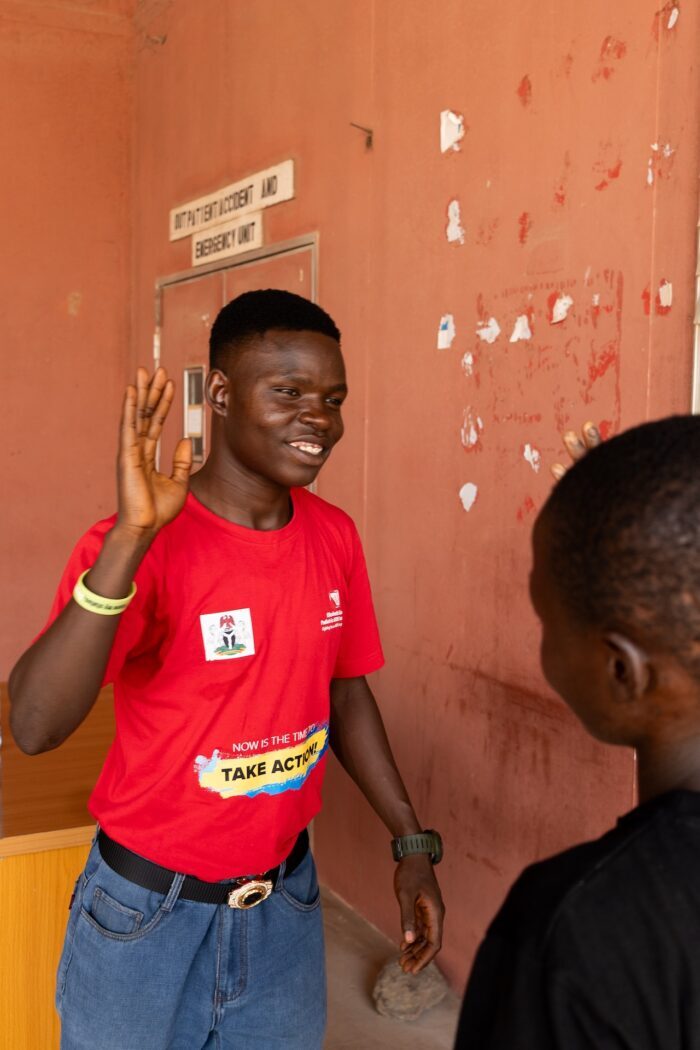
“I ensured Frank stopped taking the native herbs and adhered to his antiretroviral medication, and the support I provided to Frank made us friends,” says David. “He constantly attended the support meetings, where I facilitated sessions on various topics including life skills to promote overall well-being of adolescents and make them take charge of their health.
“Within six months, his viral load results reduced to [a healthy level]” explains David. Frank was no longer in danger of advanced HIV disease.
“I went to Frank’s house to inform him and his caregiver of the viral load results; they were so happy,” says David, smiling. The caregiver,, said that now he [Frank], takes his medication daily and takes care of himself. He supports Frank in making sure he attends the support meeting every month. Frank’s last viral load is nearly undetectable.
The Power of Psychosocial Support from Peers
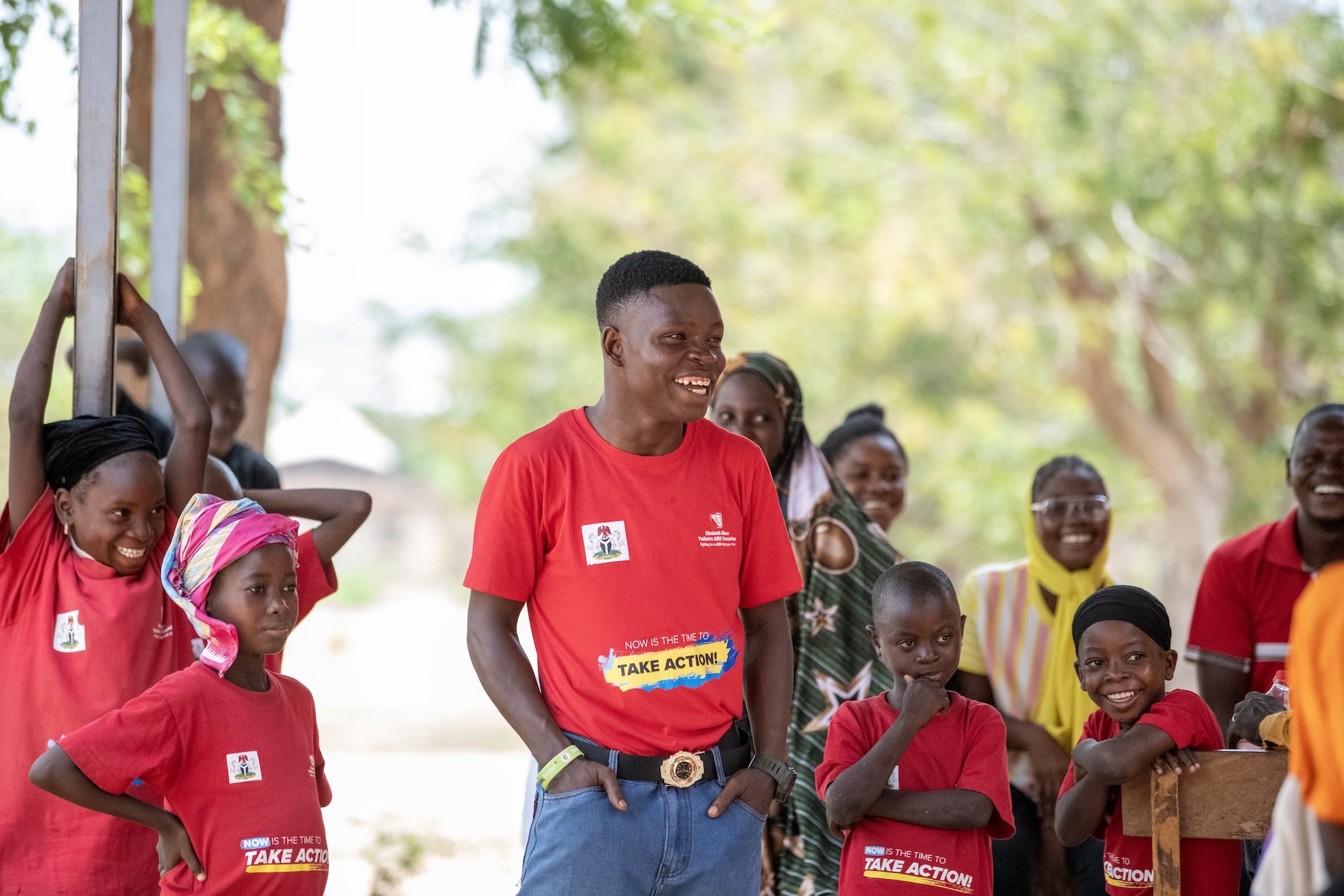
“At the beginning of the psychosocial support group, most of our adolescents were shy and could not communicate, but with the support from the adolescent peer supporters, they are able to share their thoughts and learn from each other in the safe space set up for them,” reflects Abdullahi. “The meeting days are one of my best days at the health facility.”
“On Monday we come and check on the adolescent that they are due for their drugs and [checking] their viral load,” says David. “We call them to come and pick their drugs. And on Wednesday we also do that. On Fridays, have some fun games, like table tennis. We share love among us.”
“Our adolescents are now involved in the service delivery at the health facility, and they work well with the healthcare workers and lead the psychosocial support activities,” says Benard Oyiwodu, EGPAF’s state program coordinator.
“It is an honor to serve as an adolescent peer supporter and I feel fulfilled when I provide one-on-one support to my peers because it is my dream to make sure they overcome their challenges and live a healthy long life.” says David
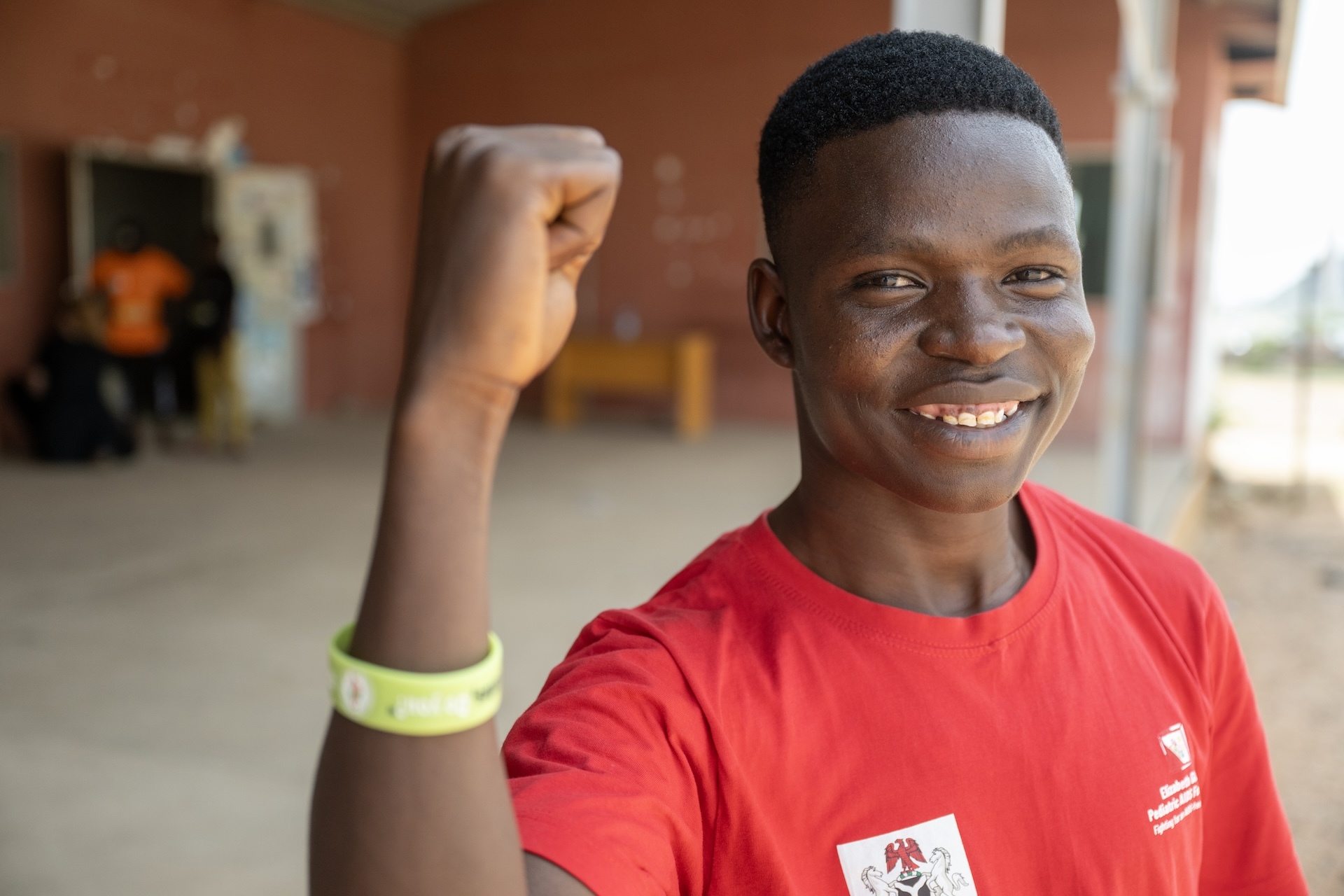
Through funding from ViiV Healthcare Positive Action, EGPAF implements the Pediatric Breakthrough Partnership Project in Rivers and Taraba States with the aim to end pediatric AIDS in priority locations.

